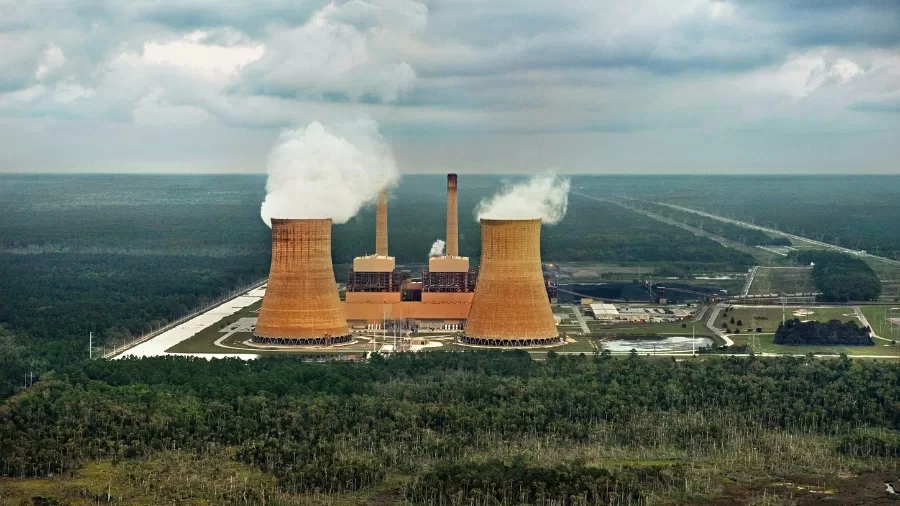Resources
How Tech Titans Are Shaping the Next Generation of Nuclear Power

- Microsoft, Google, and Amazon are investing in next-generation nuclear reactors, which will change the nuclear energy sector while also addressing climate concerns.
- Advanced reactors promise improved safety, efficiency, and waste reduction while also addressing classic nuclear concerns.
- The success of this nuclear renaissance is dependent on governmental backing, public acceptance, and continued technological advancement.
The nuclear energy landscape is undergoing a stunning transition as tech titans such as Microsoft, Google, and Amazon enter the field of next-generation nuclear reactors. This transformation is not only drawing attention; it is altering the future of energy as we know it. This article digs into the motivations for this technological shift, evaluates the potential benefits and drawbacks, and considers what the future may hold for nuclear energy in this new era.
The Appeal of Nuclear Energy
Nuclear energy has long been praised for its promise as a clean and stable source of power. Nuclear power plants, unlike fossil fuels, release far fewer greenhouse gases, making them critical in the fight against climate change. Furthermore, nuclear reactors can supply a consistent baseload of electricity, working continuously and without interruption.
However, the nuclear sector has experienced significant obstacles, principally related to safety concerns and high construction costs. The Fukushima Daiichi tragedy in 2011 left an indelible mark on public opinion, prompting more scrutiny and scepticism of nuclear technology.
The Technology Giants’ Entry
Amid these hurdles, tech behemoths are making significant investments in nuclear energy. Their motivations are multifaceted. First, energy security is a major concern. With growing electrical demands from data centres, tech businesses are looking for reliable power sources. Investing in nuclear energy improves reliability and lowers dependency on conventional energy sources.
Second, many of these companies strive for net-zero carbon emissions. Nuclear energy can make a big contribution to meeting these lofty sustainability goals. Finally, the introduction of next-generation nuclear reactors resolves many of the challenges associated with previous designs. These reactors offer enhanced safety, efficiency, and waste management, making them a desirable investment for technology companies.
Next-Generation Nuclear Reactors: A Closer Look
Next-generation nuclear reactors, often known as advanced reactors, represent a substantial shift from conventional designs. These reactors have modular designs that allow for smaller, more standardised components, potentially reducing construction time and costs. They also include upgraded safety measures, such as passive safety systems that allow for automated shutdown in an emergency, addressing a variety of safety concerns.
Furthermore, modern reactors produce less nuclear waste and may recycle current waste, resulting in more sustainable operations. They are also intended to transform more nuclear fuel into useful energy, resulting in reduced fuel consumption.
Challenges and Opportunities
Despite the potential of advanced reactors, several obstacles remain. Despite technological breakthroughs, the initial investment in creating nuclear reactors remains significant. Additionally, obtaining regulatory approval for new nuclear projects can be a complicated and time-consuming procedure. Another issue is overcoming negative perceptions of nuclear energy to generate acceptance and support.
However, the engagement of tech behemoths offers potential remedies to these issues. Their financial resources, scientific experience, and market influence can help to speed the development and commercialisation of advanced reactors.
The Future of Nuclear Energy
While the future of nuclear energy is unknown, the involvement of tech titans suggests that it can play an important role in the global energy mix. As these corporations continue to invest in next-generation reactors, nuclear technology is likely to develop significantly.
Regulatory support, societal acceptability, and ongoing technological progress are all important variables in the success of this nuclear renaissance. Governments must create a regulatory environment that supports the development and deployment of advanced reactors. Furthermore, education and outreach programs are critical for informing the public about the benefits and safety of nuclear energy.
A Shift of Momentum
Recent developments highlight the importance of technology companies’ dedication to nuclear energy. Nearly a month after Microsoft announced a $16 billion investment to rebuild the decommissioned Three Mile Island nuclear reactor, Amazon Web Services revealed a breakthrough agreement to fund next-generation nuclear projects near its Virginia and Washington server farms. This deal is especially important because Amazon is spending $500 million alongside billionaire Ken Griffin in X-energy, a Maryland-based business that specialises in tiny modular reactors.
“Amazon and X-energy are poised to define the future of advanced nuclear energy in the commercial marketplace,” stated X-energy CEO J. Clay Sell, highlighting the importance of technology businesses in determining the future of nuclear power. Google has also made progress by teaming with Kairos Power to get up to 500 megawatts of power from advanced reactors that use fluoride salt for cooling, indicating a rising interest in nuclear energy.
Conclusion
The advent of tech behemoths into the nuclear energy sector is a watershed moment for the industry. By investing in next-generation reactors, these corporations are not only meeting their energy demands but also helping to alter the nuclear landscape. As demand for electricity rises and climate concerns grow, nuclear power may become a vital component of a sustainable and reliable energy future. Collaboration between ICT innovators and nuclear developers has the potential to generate considerable progress, ultimately revolutionising how we use nuclear energy to solve the problems of the twenty-first century.

















































